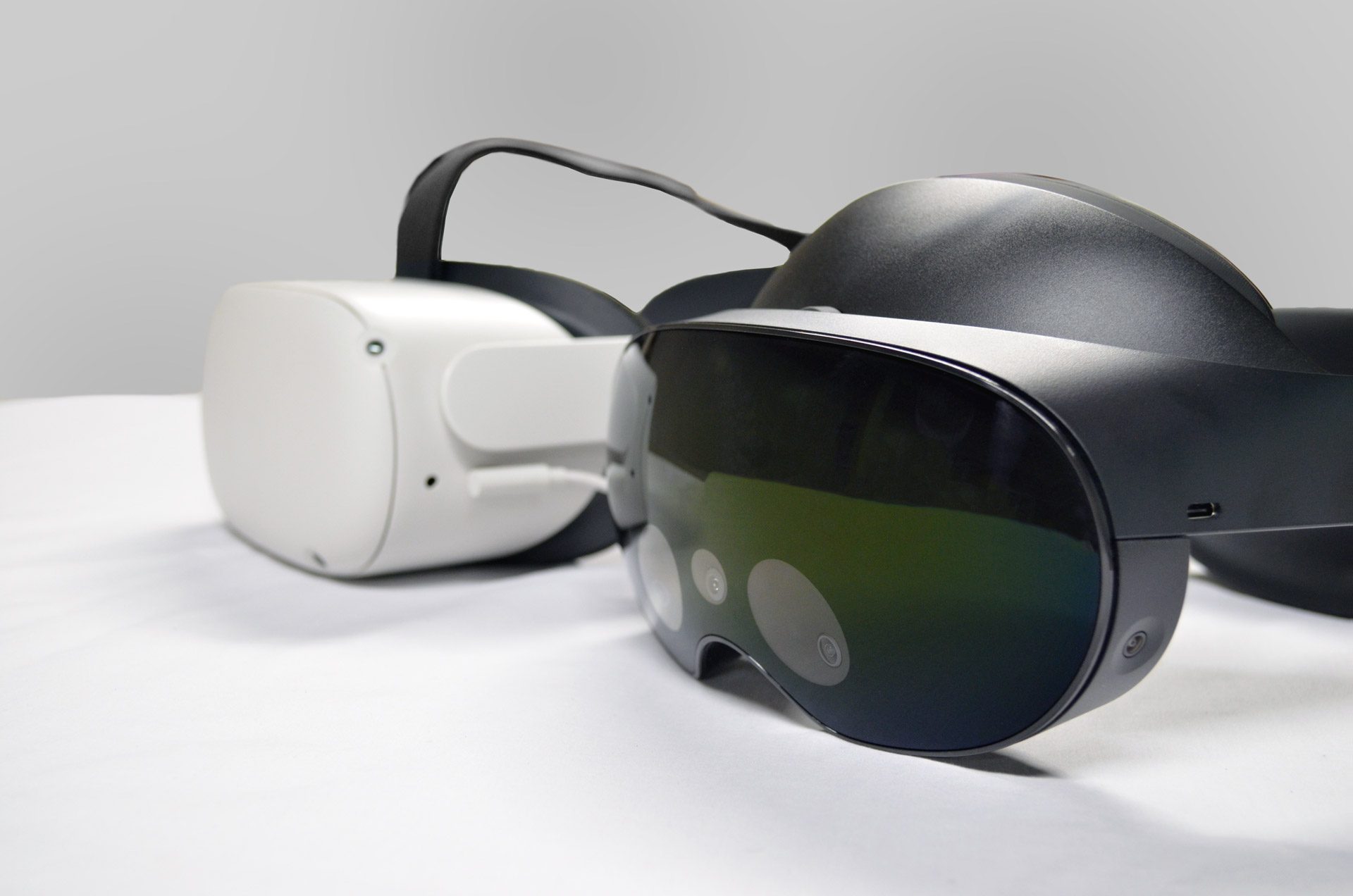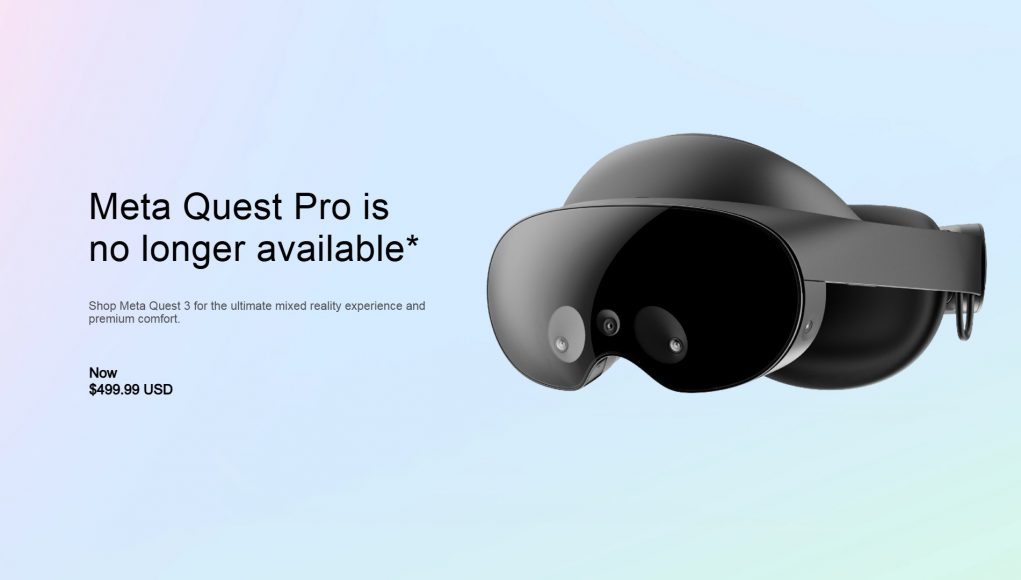Meta has officially discontinued Quest Pro, the company’s first mixed reality headset.
Meta announced back in September that it was winding down Quest 2 and Quest Pro sales. At the time, the company said remaining stock would be sold through the end of the year or until they ran out, whichever came first.
Now, in place of the Quest Pro order page, Meta is suggesting users to buy Quest 3 “for the ultimate mixed reality experience and premium comfort.” You can still buy Quest Pro’s ‘Touch Pro’ controllers however, as they support Quest 2 and above.
Released in 2022 at the eye-water price of $1,500, Meta hoped to use the headset to kickstart its mixed reality ambitions among consumers, as it was the first to offer color-passthrough, pancake lenses, and both face and eye-tracking—coming in strong contrast to the company’s other offering at the time, Quest 2.

Nearly a year after launch, it was apparent the Pro-level headset wasn’t appealing to users nearly to the degree Meta had initially hoped, prompting the company to knock Quest Pro down to $1,000. To complicate matters, high initial pricing of Quest Pro put a strain on developers, which resulted in very few compelling MR experiences out of the gate.
It was clear what was needed was a more accessible headset. In October 2023, Meta released Quest 3, which housed much of the tech seen in Quest Pro—minus face and eye-tracking, and at the starting price of $499.
Clamping down yet further on price-performance, Meta released Quest 3S a year later, which houses the same Snapdragon XR2 Gen 2 chipset as Quest 3, although including the same cost-saving Fresnel lenses and displays as Quest 2—marking the company’s most energetic push to capitalize on its mixed reality ambitions.
While Meta’s strategy to capture the console price-point with Quest has been a winning strategy thus far, what’s uncertain is whether the company will head back into the ‘Pro’ pricing structure anytime soon. The Information reported earlier last year that Meta was cancelling a potential Quest Pro follow-up, however Meta CTO Andrew Bosworth partically refuted those claims, noting that “there might be a Quest Pro 2, there might not be. I’m not really telling you, but I will say don’t believe everything you read about what’s been stopped or started.”







